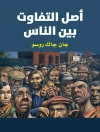This book examines research using anti-oppressive, arts-based methods to promote social change in oppressed and marginalized communities. The contributors discuss literary techniques, performance, visual art, and new media in relation to the co-construction of knowledge and positionality, reflexivity, data representation, community building and engagement, and pedagogy. The contributors to this volume hail from a wide array of disciplines, including sociology, social work, community psychology, anthropology, performing arts, education, medicine, and public health.
Table des matières
1. “To Speak in Our Own Ways About the World, Without Shame”: Reflections on Indigenous Resurgence in Anti-Oppressive Research.- 2. Listening through Performance; Identity, Embodiment, and Arts-Based Research.- 3. The Role of Privilege and Oppression in Arts-Based Research: A Case Study of a Cisgender and Transgender Research Team.- 4. Struggling to See through the Eyes of Youth: On Failure and (Un)Certainty in a Photovoice Project.- 5. Listen: The Defeat of Oppression by Expression.- 6. Conversations with Suzanna: Exploring Gender, Motherhood, and Research Practice.- 7. Insistent Humanness in Data Collection and Analysis: What Cannot Be Taken Away: The Families and Prisons Project.- 8. Hearing Embodied Narrative: Use Of The Listening Guide With Juvenile Justice Involved LGBTQ Young People.- 9. Mapping Social and Gender Inequalities: An Analysis of Art and New Media Work Created by Adolescent Girls in a Juvenile Arbitration Program.- 10. Smoking Cessation In Mental Health Communities: A Living Newspaper Applied Theatre Project.- 11. What’s in an Image?: Towards a Critical and Interdisciplinary Reading of Participatory Visual Methods.- 12. From Visual Maps to Installation Art: Visualizing Client Pathways to Social Services in Los Angeles.- 13. Fragments/layers/juxtaposition: Collage as a Data-Analysis Practice.- 14. This is not a Lab Coat: Claiming Knowledge Production as Power.- 15. Making Research and Building Knowledge with Communities: Examining Three Participatory Visual and Narrative Projects with Migrants Who Sell Sex in South Africa.- 16. AEMP Handbook by The Anti-Eviction Mapping Project (AEMP).- 17. From the Inside Out: Using Arts-Based Research to Make Prison Art Public.- 18. Envisioning Home: The Philadelphia Refugee Mental Health Photovoice Project as a Story of Effective Relationship Building.- 19. Spoken Word as Border Pedagogy with LGBTQ Youth.- 20. Lessons in Dialogue, Ethics, and the Departure from Well-Laid Plans in the Cultivation of Citizen Artists.
A propos de l’auteur
Moshoula Capous-Desyllas is Associate Professor of Sociology at California State University, Northridge, USA. She teaches various courses related to anti-oppressive social work practice, diversity and social justice, and qualitative and arts-based research methods. Her passion lies in highlighting the voices of marginalized communities through the use of art as a form of activism, empowerment, and social change.
Karen Morgaine is Associate Professor of Sociology at California State University, Northridge, USA. She teaches a variety of courses related to community organizing, anti-oppressive social work practice, and LGBTQQIP communities. Her research leans toward investigating social movement framing and power and privilege within social movements.












